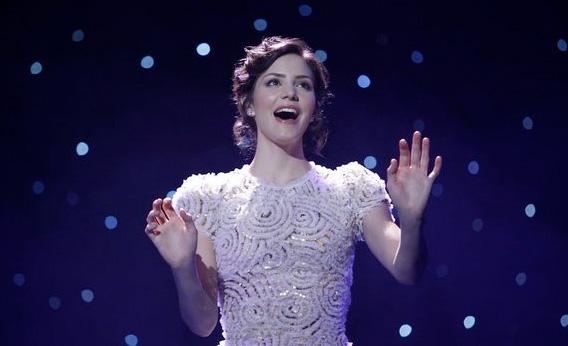Smash is Coming Back. Will It Learn From Nashville's Success?

Will Hart – © NBCUniversal, Inc.
When NBC's Smash, a musical drama about the making of a Broadway show about Marilyn Monroe, premiered in February, I wanted to like it. It's rare enough to get a network television show that focuses on middle-aged women, like Debra Messing's songwriter Julia Houston, or that portrays gay men without resorting to stereotypes, much less one that captures the artistic process in a genuinely invigorating way. But what we got instead was catfights between two rising young actresses competing for the same part, lots of telling rather than showing about Julia and her writing partner Tom's creative process, the world's most annoying teenager, and only the glorious spectacle of Anjelica Huston tossing martinis to compensate. The just-released trailer for the new season of Smash, which returns in February with a new showrunner and absent a number of its original stars, sadly seems prepared to retread the same old dynamics, with the addition of Jennifer Hudson:
In the meantime, Glee has recovered a step in its fourth season, and Nashville, ABC's musical drama about country singers, has completely swiped the sophisticated musical-for-adults title Smash had hoped to claim. Here's what Smash should learn from those shows:
1. Female competition doesn't have to be catty: In Nashville, aging diva Rayna James and rising star Juliette Barnes don't care much for each other. But it's not a simple matter of a generational rivalry or just plain dislike-at-first-sight. They have strikingly different relationships to the conventions of country music and to the creeping influence of conventional pop on the genre, different ways of doing business with the managers and record industry executives, and very different pressures in their personal lives. All of these points of friction are deeply woven into the scenes involving each woman: It makes sense that they are rivals, rather than it feeling like they're rivals because the show needs the beef. Smash could use more genuine friction between Karen and Ivy if the show is to continue as a competition between them, and we should feel like that competition means something, whether it's about the end of a traditional approach to Broadway stardom or the defeat of the commercial interests that govern what makes it to the stage.
2. The creative process makes good TV: Much of Smash's first season illustrated the tension between Julia and Tom by having them fight over Julia's affair with the show's male lead, rather than showing us how they work together and diverge creatively. People who watch behind-the-scenes shows are genuinely interested in how the creative process unfolds. Make that, rather than interpersonal drama that could be on any other show, drive the plot.
3. We can spot talent from our couch: In order to persuade us that Katharine McPhee's Karen really is supremely talented, Smash kept staging montages that showed crowds responding rapturously to her performances, but the performances themselves weren't that great. Glee and Nashville know enough to let the music speak for itself. Watching Blaine on Glee sing a shattered version of "Teenage Dream" without fancy choreography or backing vocals, or seeing Scarlett, the rising young songwriter on Nashville, nail "Fade Into You," we don't need convincing that they deserve a shot at stardom. We want it for them.
